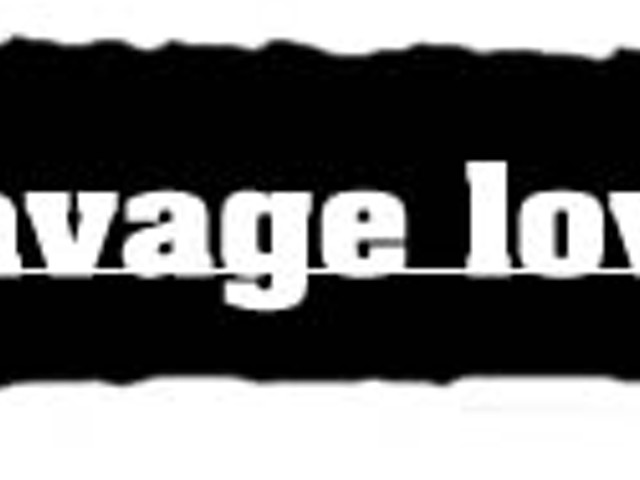The last time we caught up with Tom Ness, sometime musician and publisher of a zine called Jam Rag, he was running for Congress on the Green Party ticket, trying to raise awareness of a few issues among voters in southern Oakland and Macomb counties.
That made a lot of sense. Sandy Levin, the incumbent Democrat, was safely entrenched and hadn’t gone out on a limb on behalf of a new, let alone controversial, idea in decades. Ness was out there, calling for a return to grassroots democracy.
He wanted single-payer health insurance, less money for the Pentagon (that wasn’t treason then), and an end to NAFTA, the drug war and the death penalty.
Well, Ness lost by a hair or two, 157,720 to 4,127. He downplayed any talk of a recount … but he’d got some people thinking, and after the election did something more valuable. He converted his campaign headquarters into a makeshift political-community center, called “the Green House,” on the southeast corner of Nine Mile and Woodward.
There, they are doing something very important these days: hosting and sponsoring open, freewheeling community discussions, every Saturday from 3-5 p.m., about the war. Discussions, that is, that are mostly anti-war.
Yes, Buffy, don’t expect to see this on your local TV “news” anytime soon, but there are people, in your very neighborhood even, who aren’t convinced our glorious war on terror is the greatest idea since the electric toothbrush.
And you heard it here first — their numbers will grow. You don’t have to be a pacifist, or even necessarily to agree with most of what the Greens stand for, to think that encouraging dissent is vitally important.
Even some who supported taking out Osama and the Taliban may now be getting uneasy. For one thing, it is becoming increasingly, and ominously, hard to define exactly what this “war” is. When the president spoke to the nation after the Sept. 11 attacks, he appeared to be talking about a World War II-style total commitment.
Four months into all this, it’s hard to avoid feeling what much of America wants now is a sort of a cheap thrill, a high-tech video-game war, just scary enough to let us persuade ourselves that we are going through an ordeal.
We — especially the politicians and the media — want a war we can safely ignore when, say, we want to go on vacation, but which we can always take out of the box when we need it, and play Where’s Osama? or Where’s Omar? (There he is! I see him! … whoops! Drat, he got away again, this time on a motorbike! Well, we’ll catch him next time for sure!)
Increasingly, some of the coverage is downright silly. Last week, we had our first real honest fatality. No, not truth this time, but a sergeant from Texas, shot to death in some skirmish. The media earnestly covered this as though the very idea of one of our foot soldiers getting killed in a war zone was nothing short of astonishing.
The day they brought his much-covered body back, I happened to be having lunch with a man who was a battlefield medic during Vietnam, where our combat deaths averaged 200 a week or so. What he had to say wasn’t printable, even here.
But if the ballyhooing of our one combat death is a bit tasteless, the thought of a perpetual, poorly defined “war” against people we don’t like strikes me as being scary.
Scarier, that is, than what happened Sept. 11. This may get me lynched, but the truth is that we have managed to sully a truly significant event by inflating it with ever-increasing hype. Every politician and every talking head now feels obligated to refer to it as “the day everything changed forever,” etc.
Well, if California had disappeared into the sea or someone had dropped a nuclear bomb on Manhattan, that would be appropriate. But this wasn’t that. And it does not now seem that the Sept. 11 events were, as we feared then, an opening salvo. Since then the terrorists have done nothing, except perhaps one day of mailing anthrax letters.
The war has consisted of our side whaling the tar out of them, or who we perceive as “them,” with almost no response. We have used proxies to do our fighting. Not counting the men we dropped our own bomb on, and various accidents, we’ve lost one CIA man, who was beaten to death in prison, and now one soldier.
Gradually, the war is receding into background noise. The New York Times just dropped its daily special section devoted to it. Timid Democrats are beginning to mutter publicly again about Bush’s bad environmental and wrongheaded economic policies.
Over at the Green House, Tom Ness, who makes a hand-to-mouth living, has sworn off elective politics and is dedicating himself to providing a place where people can come and talk about a variety of issues, from airline bailouts to animal rights. They also do poetry and music and small versions of what used to be called teach-ins.
This all may look ragtag and small, and their voices are barely being heard. Yet. But some remember another war everybody supported at first, a war in which the government never could quite explain what we were doing or why.
Ness, whose only form of transport is a battered bicycle, occasionally whirls around neighborhoods, putting leaflets in people’s doors. Sometimes, the recipients “then show up at our discussions. They say they didn’t know anyone else felt the way they did!”
You can check this out online at greenhouseonline.org, or give them a call at 248-336-9241. Unless, that is, you are comfortable depending on the Detroit Newspaper Monopoly and Guy Gordon to tell you everything you need to know. Cheers.
Jack Lessenberry opines weekly for the Metro Times. E-mail [email protected]




